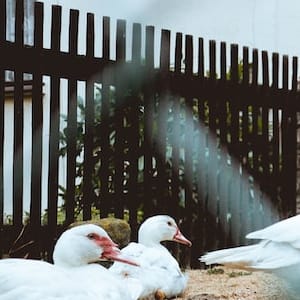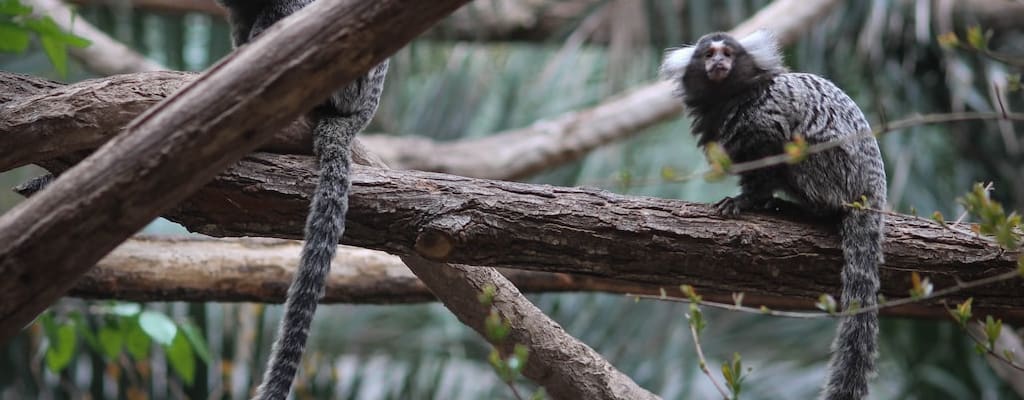wild-goose chase: Idiom Meaning and Origin
What does ‘wild-goose chase’ mean?
The idiom "wild-goose chase" refers to a fruitless or pointless pursuit or search that is unlikely to be successful. It implies a wasted effort and a sense of futility.

Idiom Explorer
The idiom "to no avail" means that someone's efforts or actions have not achieved the desired result or outcome.
An idiom meaning an unrealistic or unattainable desire/expectation, often used to convey someone wanting something that is impossible to obtain.
An idiom meaning a foolish or pointless activity.
The idiom "lost errand" refers to an activity or task that is pointless, futile, or a waste of time.
The idiom "lost cause" refers to a situation or effort that is deemed to have no chance of succeeding or being successful, making further investment of time or resources pointless.
The idiom "lead nowhere" means that a situation or action has no positive outcome or result. It implies that the efforts put into something are futile and will not lead to any productive or useful outcome.
The idiom "in vain" means to do something without achieving the desired outcome or result. It emphasizes the futility or lack of success in one's efforts.
The idiom "hunt where the ducks are" means to focus one's efforts and resources where one is most likely to succeed or find opportunities.
Wild Pursuit.
The idiom "wild-goose chase" refers to a futile or pointless pursuit. It is often used to describe a futile search for something or a task that is ultimately fruitless. The idiom suggests a sense of aimlessness and futility, emphasizing the idea that the pursuit is as fruitless as chasing a wild goose.
The term "wild-goose chase" first appeared in Shakespeare's play "Romeo and Juliet" in the late 16th century. In Act 2, Scene 4, Mercutio uses the phrase "Nay, if thy wits run the wild-goose chase, I have done" to imply that Romeo is engaging in a pointless pursuit of love. However, its exact origins and any usage prior to Shakespeare's play are uncertain.
Despite the uncertainty surrounding its origin, the idiom "wild-goose chase" gained popularity over time and is still widely used today. Its figurative meaning resonates with people across different cultures and languages, as the concept of chasing after something unattainable or elusive is universal. The idiom's enduring usage highlights its usefulness in expressing frustration or skepticism towards endeavors that are ultimately bound to fail.
The phrase "wild-goose chase" has been adapted into other languages as well. In French, the equivalent idiom is "chasser les papillons" (to chase butterflies), which also signifies a futile or pointless pursuit. These linguistic variations demonstrate the universality of human experiences and the commonality of idiomatic expressions used to convey similar meanings.
One related idiom is "chase one's tail". This phrase is used to describe someone engaging in a repetitive or unproductive activity that leads to no progress or resolution. It is often used humorously to highlight the absurdity of the situation. In a way, "chase one's tail" can be seen as a variation of a "wild-goose chase", where the pursuit is circular and ultimately pointless.
Another related idiom is "snipe hunt". This idiom is used to describe a practical joke or trick where someone is sent on a seemingly important mission or task, only to discover that it was all a prank. The term "snipe hunt" originated from the hunting of snipes, a type of bird that is notoriously difficult to catch. Similar to a "wild-goose chase", a "snipe hunt" involves the pursuit of something that is ultimately unattainable.
"chase a rainbow" is also a related idiom that shares similarities with a "wild-goose chase". It refers to the pursuit of something that is impossible or unlikely to be achieved. Just as chasing a rainbow is futile because it is an optical illusion, chasing after something unattainable is equally fruitless.
"lost errand" is another idiom that relates to a "wild-goose chase". It is used to describe a task or mission that is ultimately pointless or fruitless. The term "lost" implies that the purpose or objective of the errand is unclear or nonexistent, emphasizing the sense of aimlessness and futility that is associated with a "wild-goose chase".
"fool's errand" is yet another idiom that shares similarities with a "wild-goose chase". It refers to a task or mission that is undertaken despite it being known to be pointless or bound to fail. The term "fool's errand" suggests that the pursuit is foolish or absurd, emphasizing the futility and lack of purpose in the endeavor.
The idiom "wild-goose chase" is a widely used expression that conveys the idea of a futile or pointless pursuit. Its origins are uncertain, but it has gained popularity over time and is used in different languages. The idiom's figurative meaning resonates with people across cultures, reflecting the shared human experience of chasing after something unattainable. It captures the essence of aimlessness and futility, leaving room for individual interpretation and reflection.
Example usage
Examples of how the idiom "wild-goose chase" can be used in a sentence:
- 1. He went on a wild-goose chase trying to find his keys, only to realize they were in his pocket the whole time.
- 2. The detectives felt like they were on a wild-goose chase, pursuing leads that never led to any valuable evidence.
- 3. Sarah felt frustrated after going on a wild-goose chase to find a specific book at the library, only to discover it was checked out.
More "Misdirection" idioms



